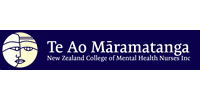Event Details
The Mental Health and Wellbeing Commission (Te Hiringa Mahara) was established in 2021 following the Report of the Government Inquiry into Mental Health and Addiction 2018, He Ara Oranga. Te Hiringa Mahara plays a role in the transformation of the mental health and addiction system - to achieve better and equitable mental health and wellbeing outcomes for Māori and all people in Aotearoa. Legal functions include assessing, monitoring, and reporting on mental health and addiction services, making recommendations for improvement, and advocating for the collective interests of people who experience mental distress or addiction (or both) and the persons (including family and whānau) who support them. This webinar will present on our recent work related to monitoring and reporting on coercive practices under the Mental Health (Compulsory Assessment and Treatment) Act 1992. The Act has been widely criticised for being inconsistent with our legal obligations under domestic and international human rights, and its lack of adherence to the principles of Te Tiriti o Waitangi. The Government has committed to repeal and replace the Act and this process is underway, but it is likely to be many years before new legislation is passed and implemented. In our recent report 'Lived experiences of compulsory community treatment orders' we call for new law, based on supported decision making, embedding Te Tiriti and a Te Ao Māori worldview. We also call for changes that can, and should, be made in practice now. The report intentionally brings forward the views of tāngata whaiora Māori, people with lived experience, family, and whānau related to the compulsory community treatment order process, in particular the clinical review (application) and the court hearing (outcome) as formal substitute decision-making practices under the Act. Voices in this report raise questions about the extent to which people are involved and participate meaningfully in clinical reviews and court hearings under the Act. Such questions show there is more work to do to improve practices, such as sharing clinical and other information in plain language, taking more time for decision making, involving whānau, family, and other supporters in planning with tāngata whaiora, and supporting tikanga in court hearings - changes in practice we consider are consistent with Manatū Hauora updated 2020 Guidelines on the Act. In the report we acknowledge mental health professionals, district inspectors, lawyers, and judges can bring important knowledge and understanding about these processes in practice and this report is part of the public conversation on reframing risk as recommended in He Ara Oranga. All these perspectives will be critical to achieving the transformation that is needed. Our aim in meeting with these groups is to share our findings, hear their perspectives, and discuss how we can support the shifts required in practice under the current Mental Health Act.




